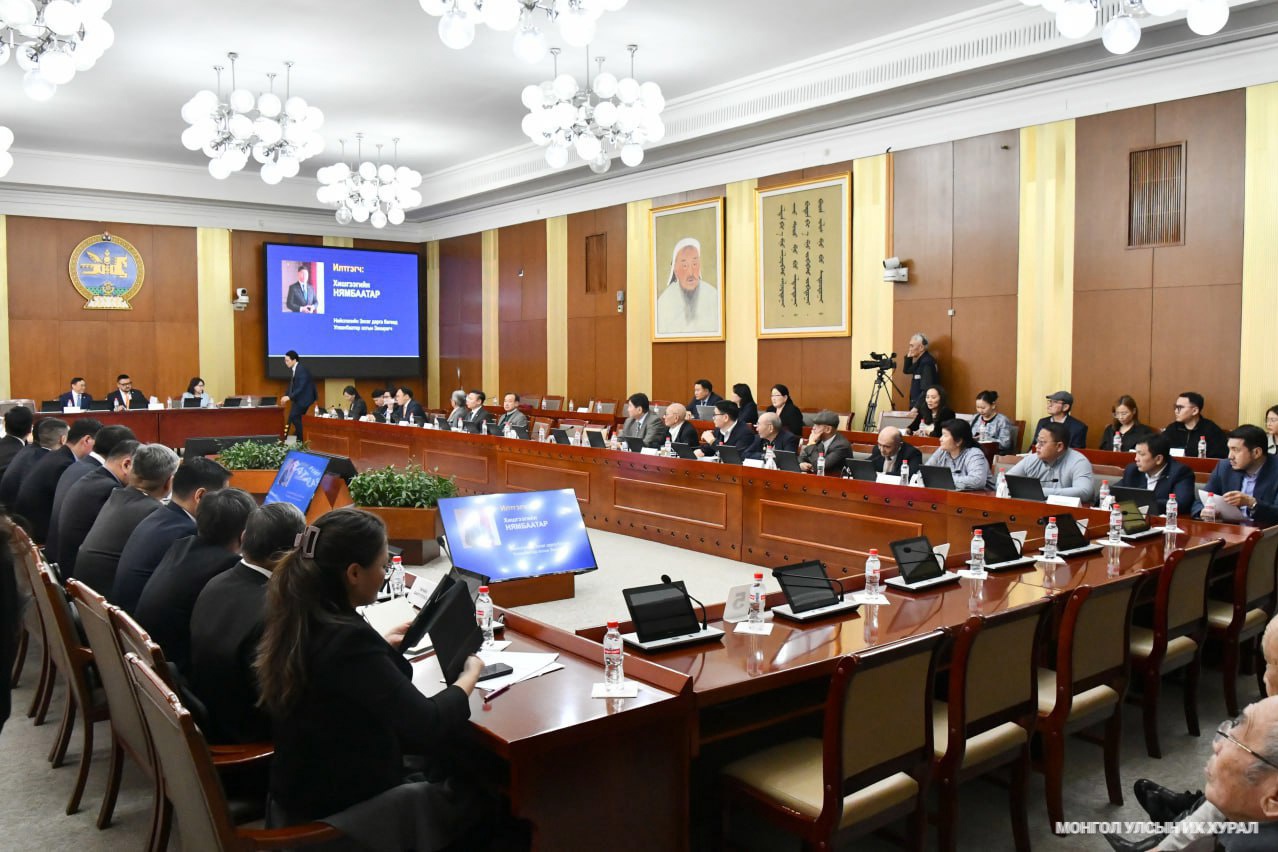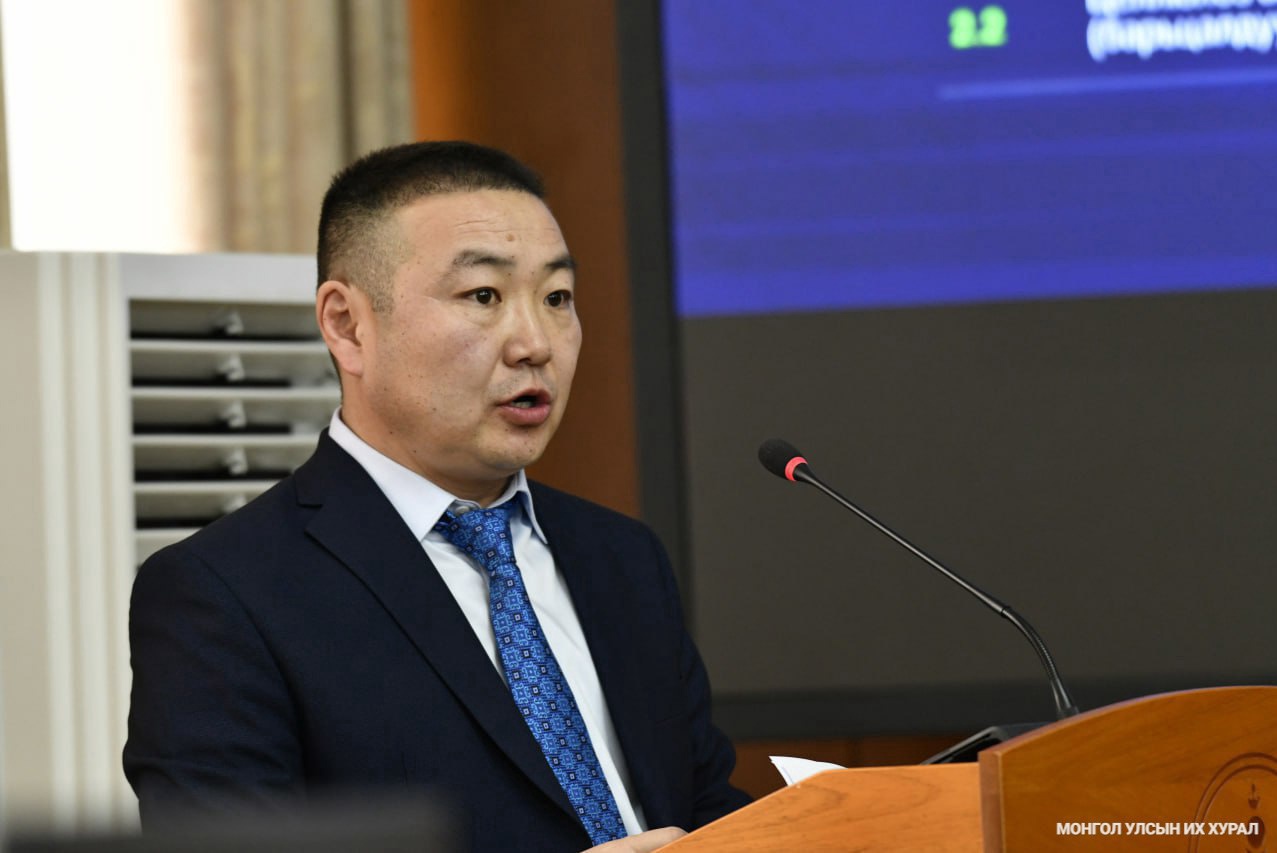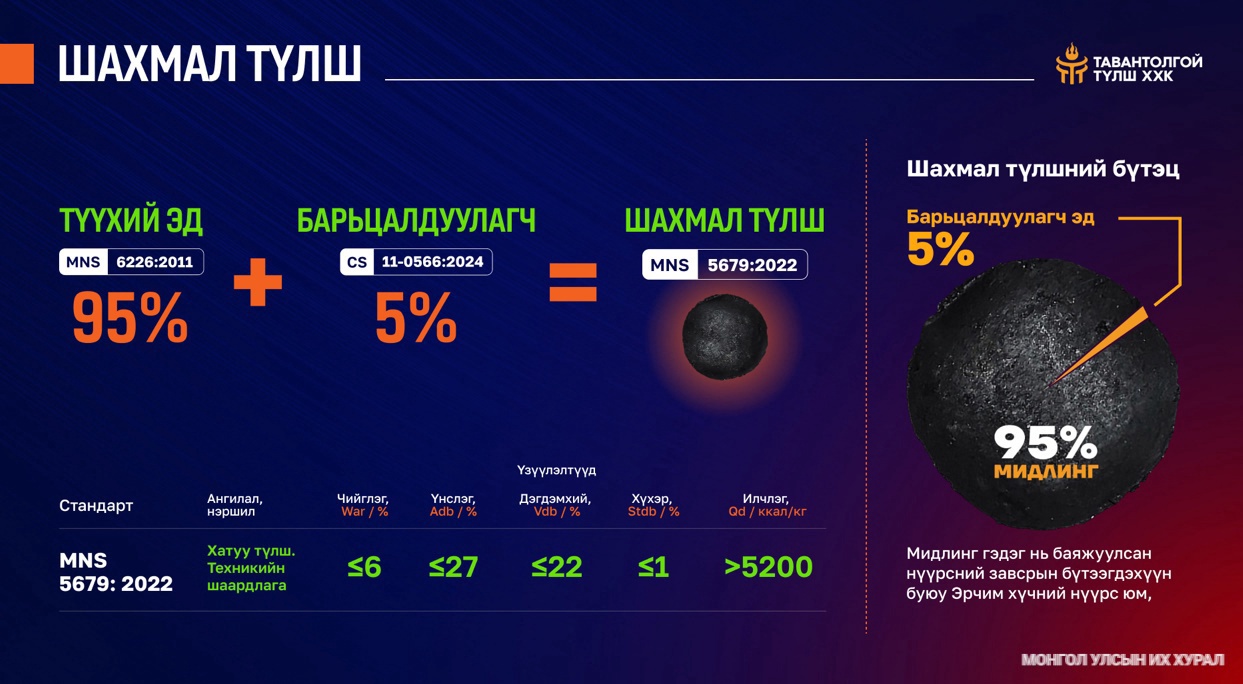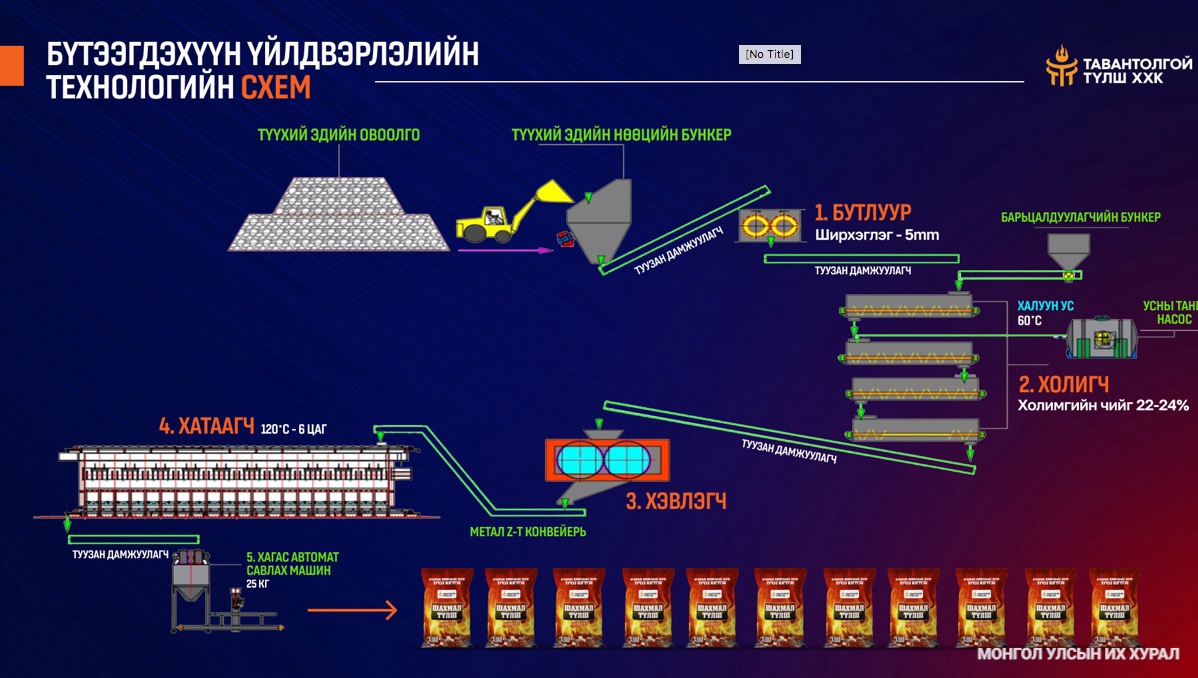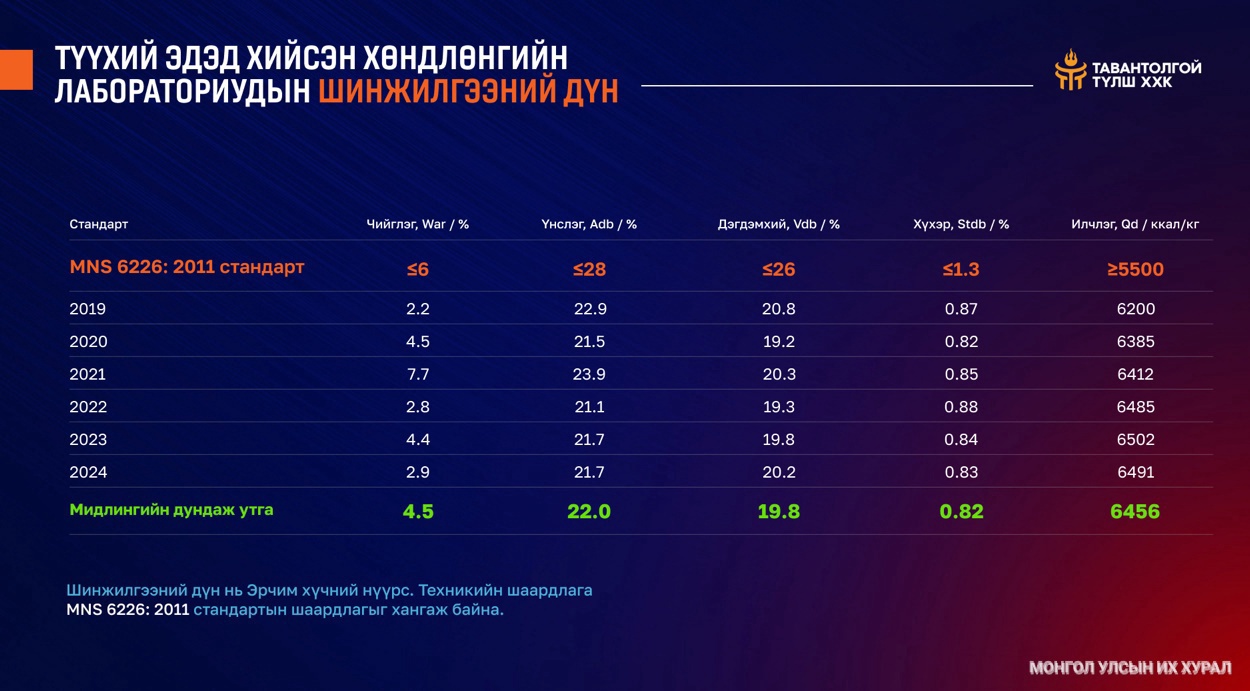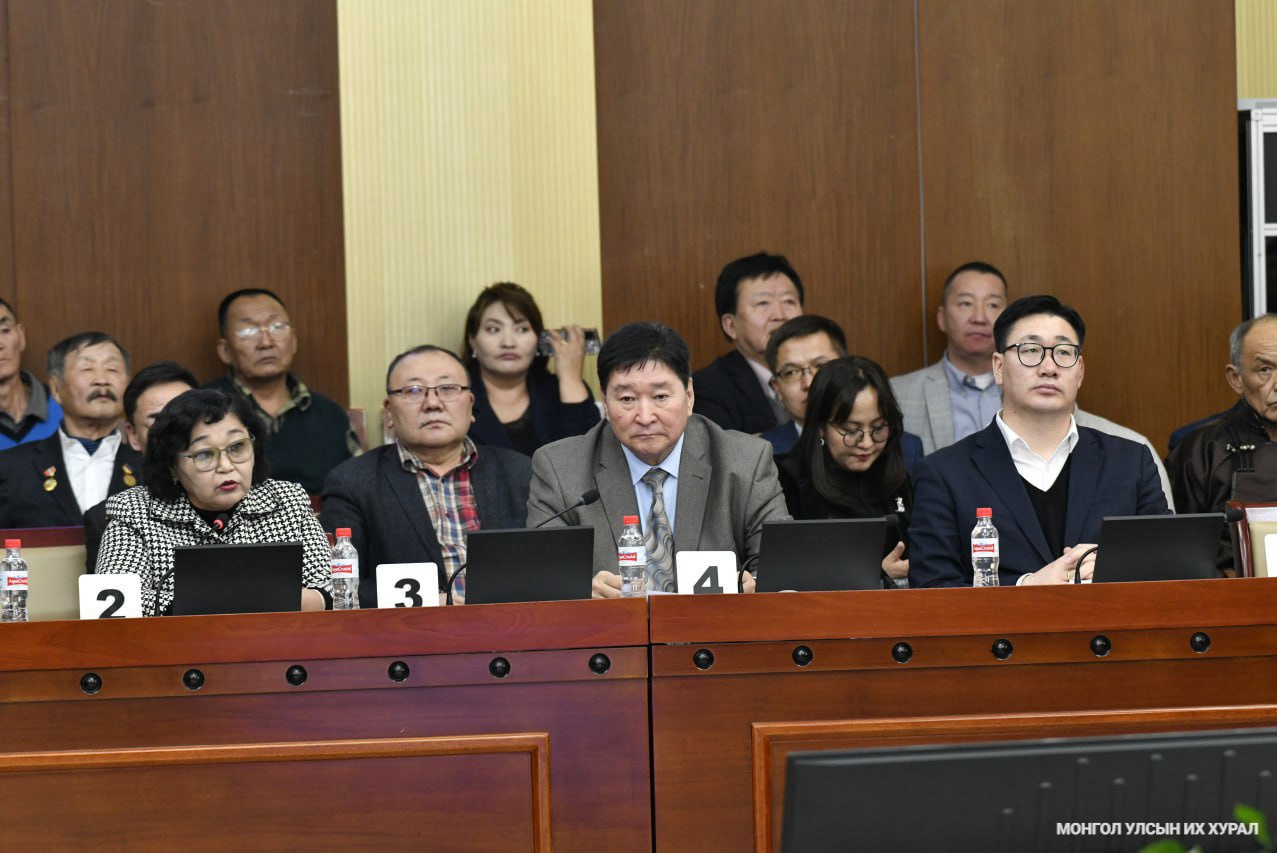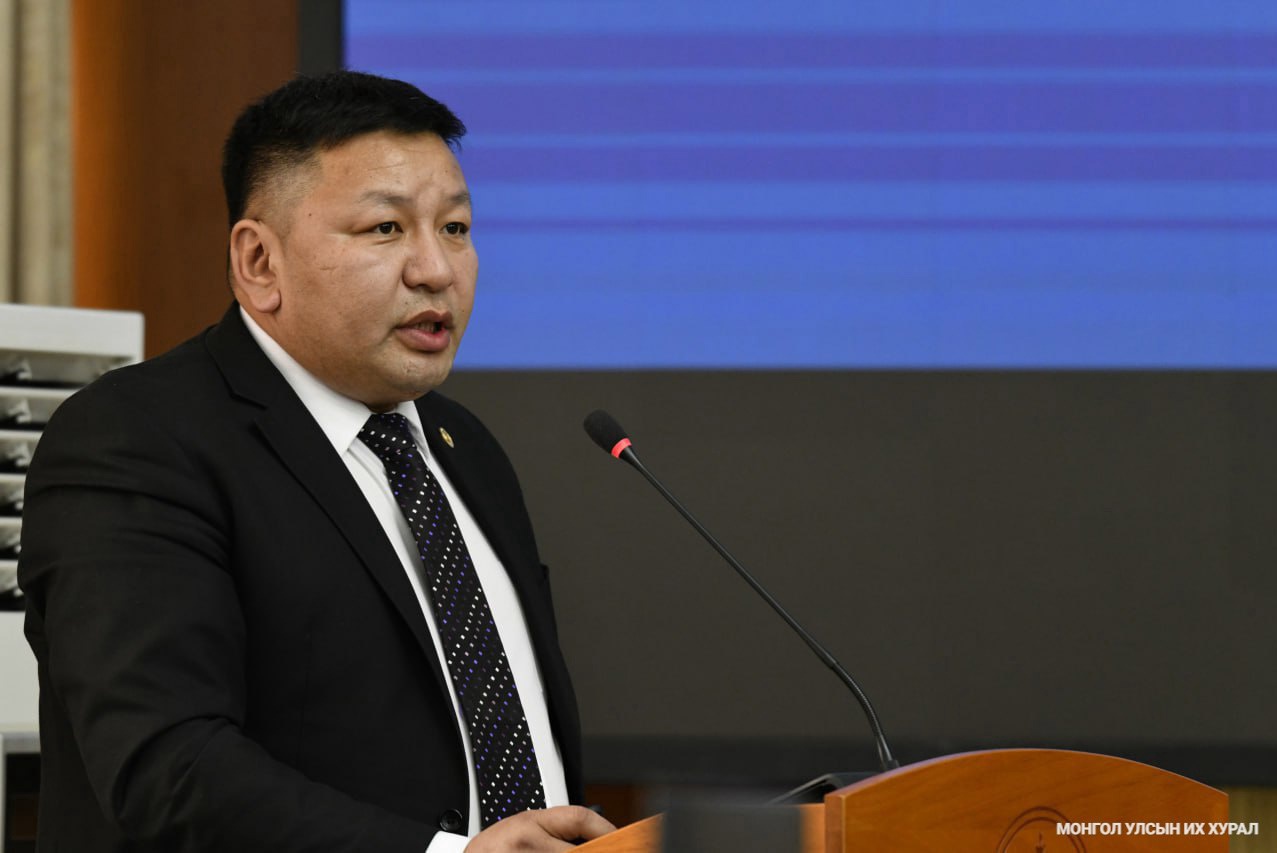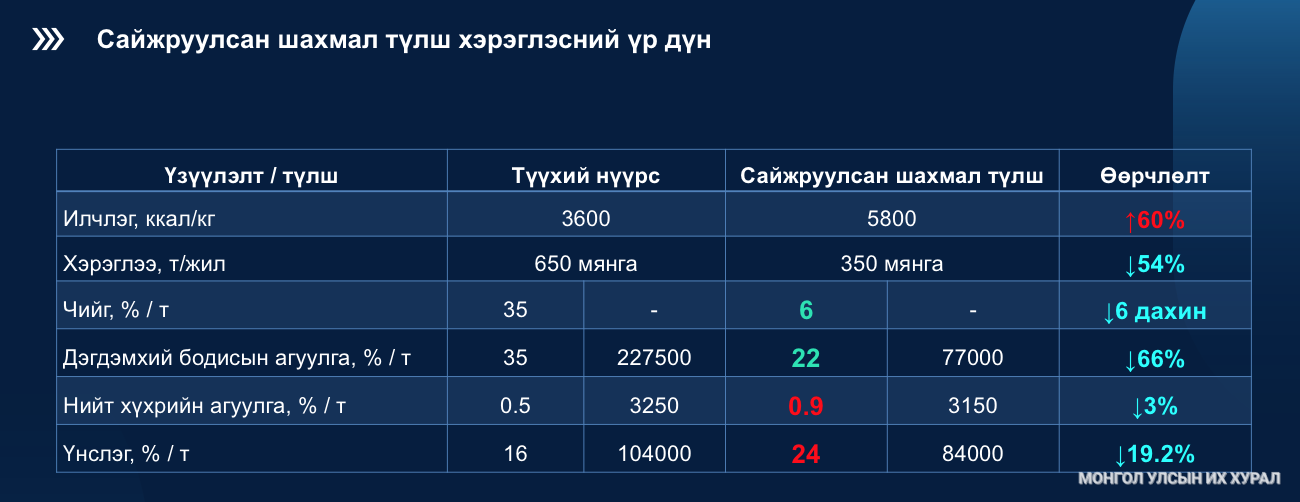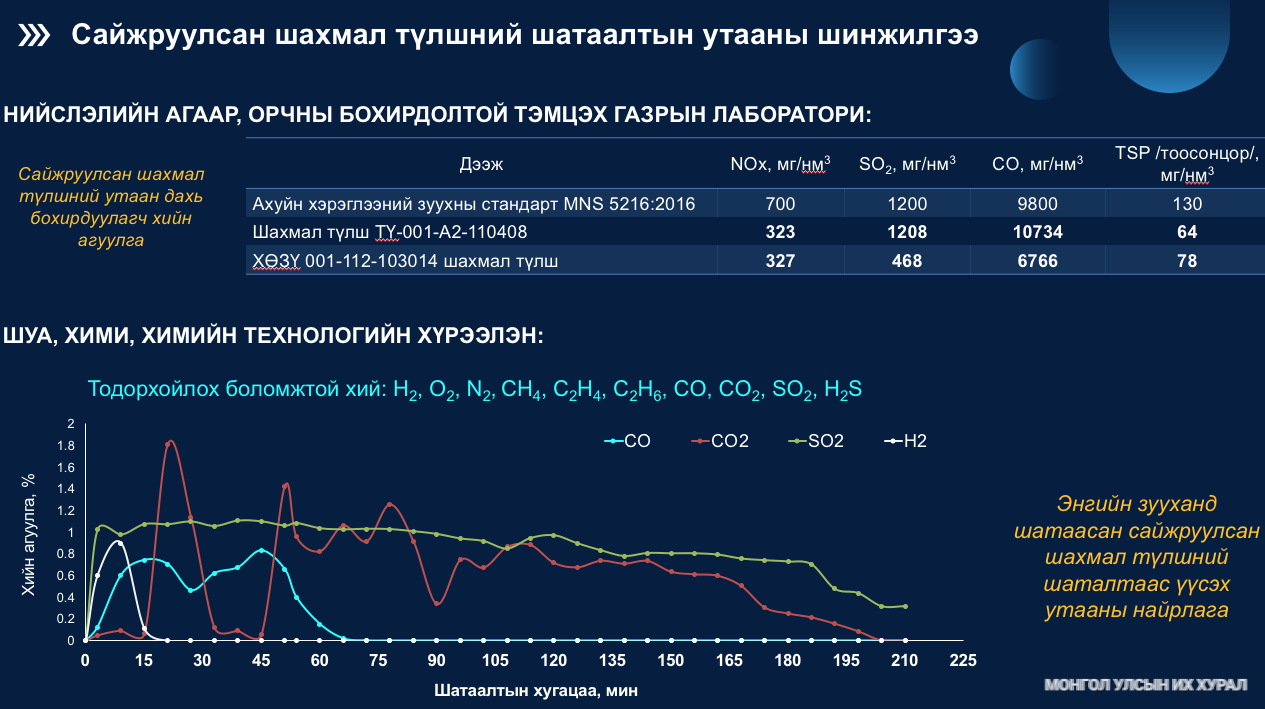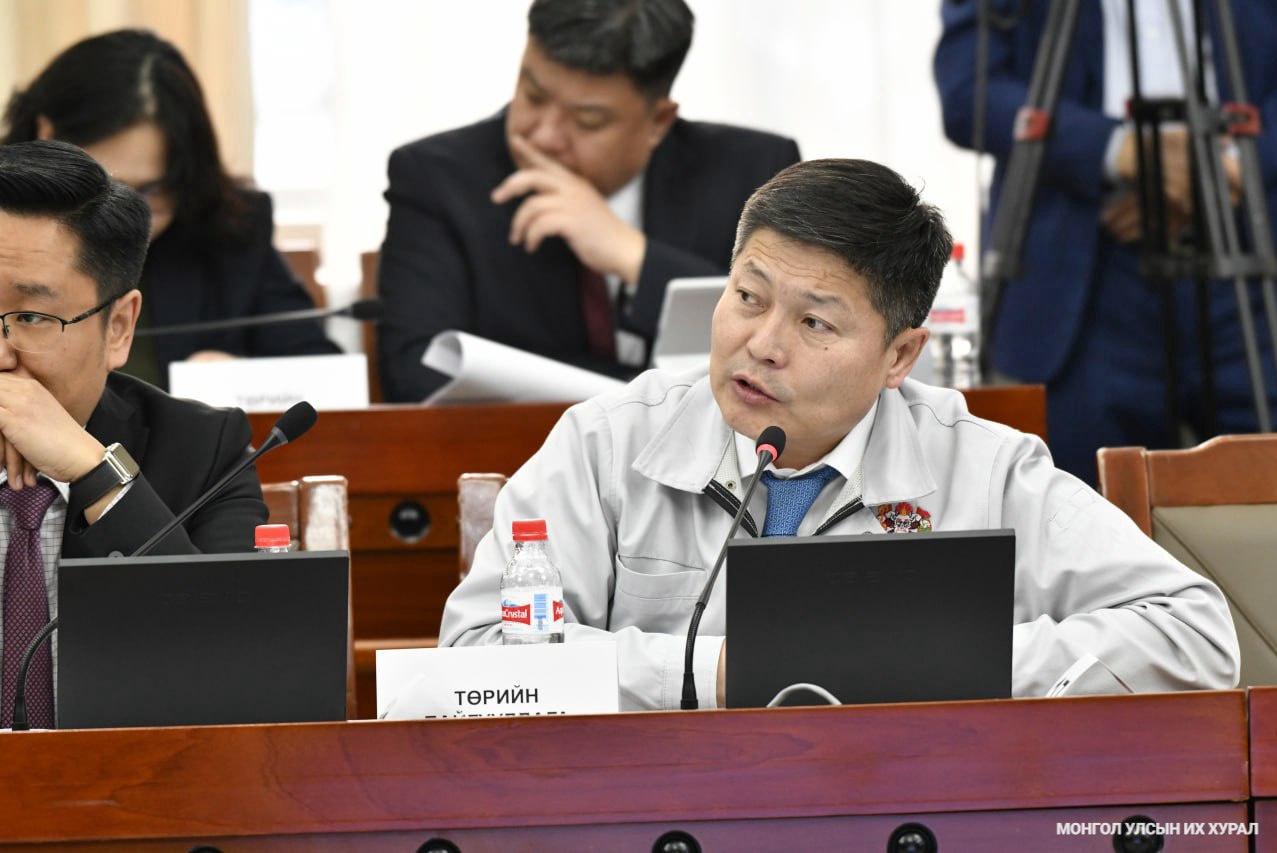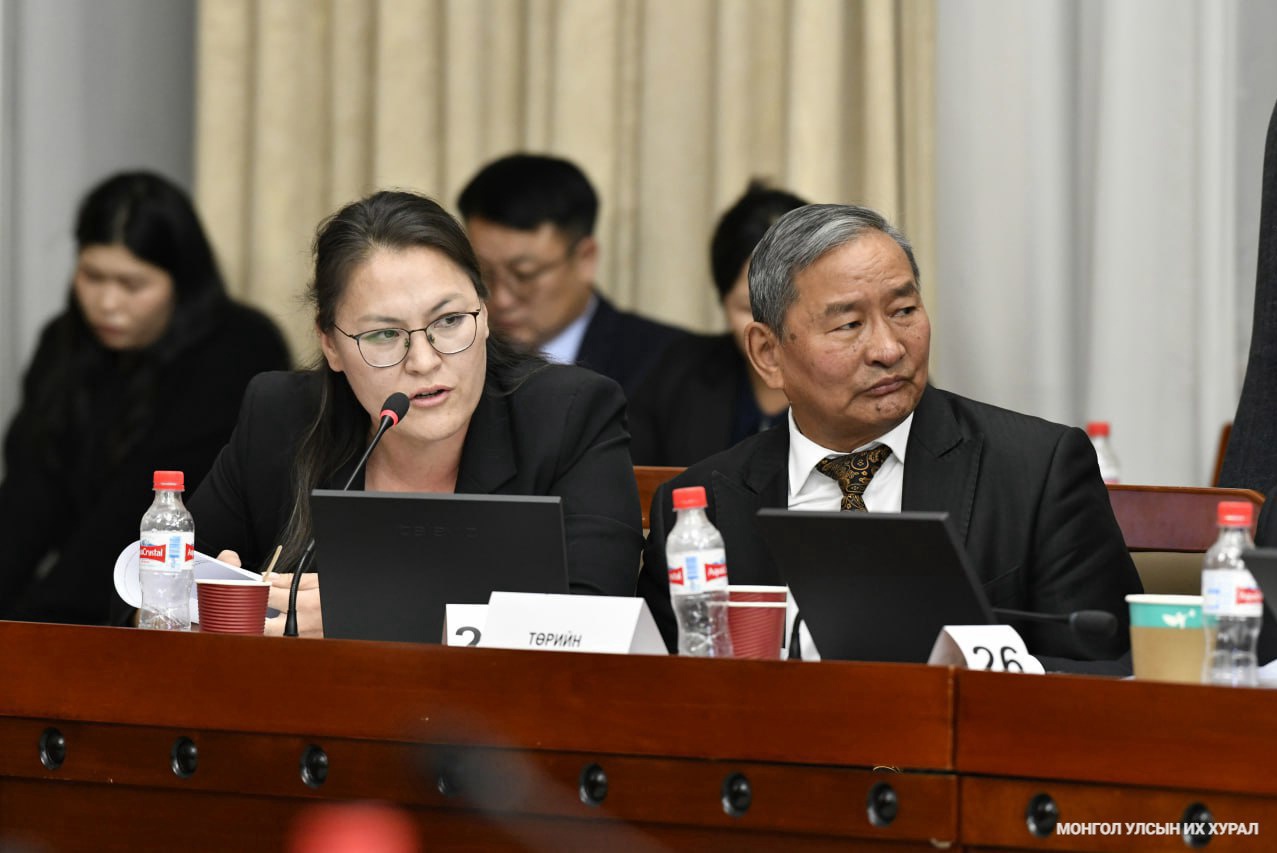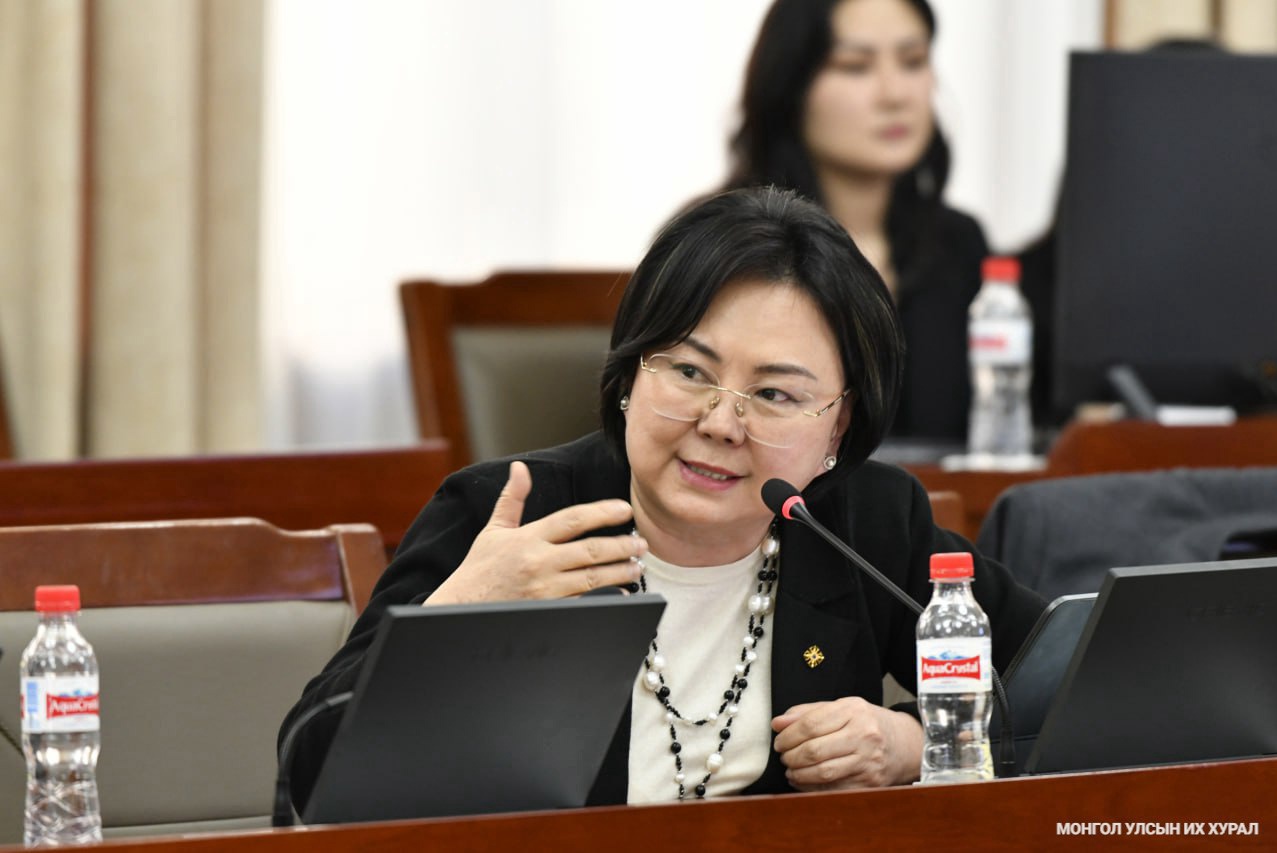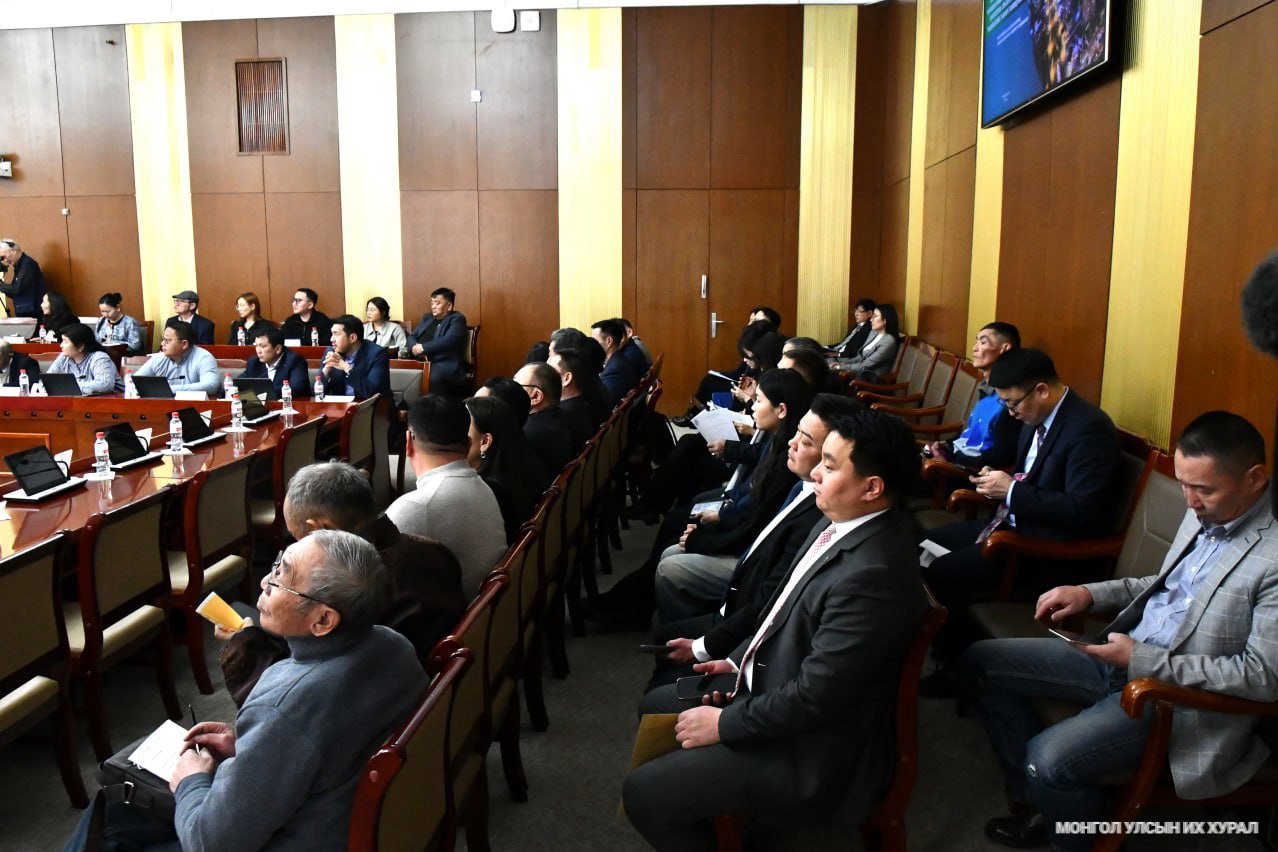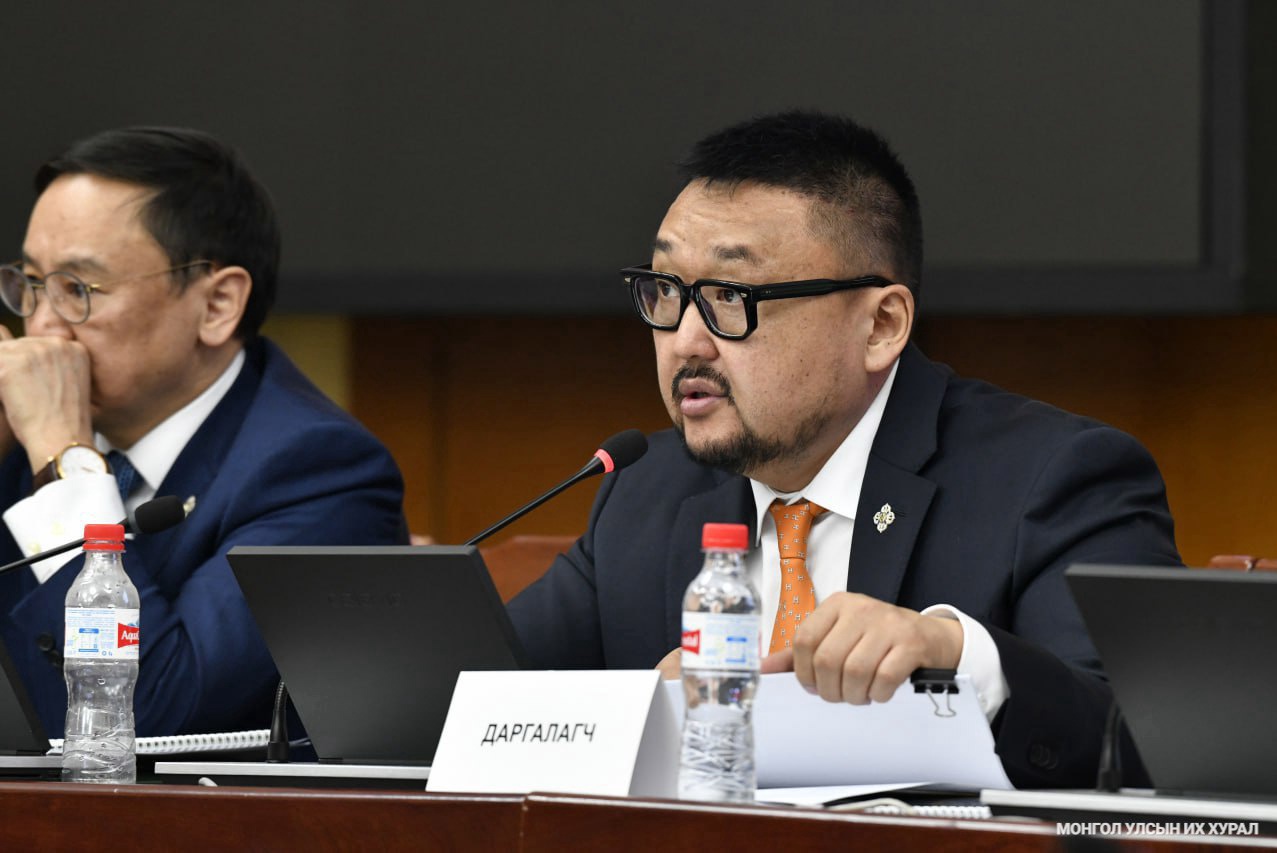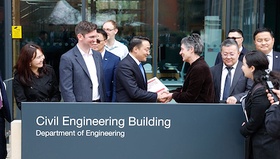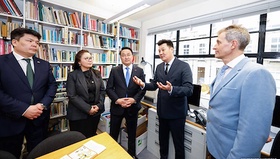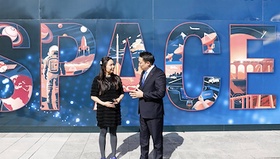As part of the general oversight hearings on air pollution, the second discussion on Air Pollution: Standards and Monitoring (Stove and Fuel Technology) continued today (2025.01.22) with presentations from sectoral researchers and officials.
Tavantolgoi Tulsh LLC’s Chief Technologist D. Ulziibat delivered a presentation on “Production, Technology, and Quality of Improved Briquette Fuel.” He outlined the company's adherence to standards MNS 3818, MNS 5679-2019, and MNS 5679-2022. He explained the transition from raw coal to briquettes and highlighted the benefits: lower moisture and volatile matter levels, and higher calorific value (5,500 kcal/kg), which collectively contribute to a 50% reduction in air pollution.
Colonel T. Bayarkhuu, Secretary of the Institute of Chemistry and Chemical Technology, presented on “Monitoring Sources of Air Pollution.” He described efforts to prevent carbon monoxide poisoning and enforce air quality regulations in designated improvement zones. Key initiatives included the “Risk-Free Inspection,” “Let's Prevent Accidents,” and “Smart Usage” campaigns. Bayarkhuu reported that inspections of 123,151 households and 1,685 enterprises in Ulaanbaatar identified 146 violations, including illegal use of raw coal.
G. Shiirev, Head of the Coal Chemistry Laboratory at the Institute of Chemistry and Chemical Technology, discussed the combustion characteristics of briquettes. He noted benefits such as reduced raw coal usage and lower emissions but also highlighted challenges, including increased sulfur and ash content.
Participants, including the public and MPs, raised questions about the testing of stoves and fuels, illegal sales of vehicle catalytic converters, and measures to support renewable energy solutions in ger districts.
Mayor of Ulaanbaatar H. Nyambaatar addressed concerns about transitioning to gas by 2030 and introduced plans to monitor catalytic converters with a new marking system. N. Tavinbekh, State Secretary of the Ministry of Energy, emphasized that increased air pollution is largely due to higher fuel consumption, not a decline in briquette quality.
Minister of Environment and Climate Change S. Odontuya discussed ongoing efforts to implement air quality standards nationwide and plans to expand monitoring stations to all provinces by 2025.
In closing, MP Z. Mendsaikhan thanked participants and emphasized that air pollution is a collective concern requiring unified efforts from the government, researchers, and citizens. He urged MPs to support the forthcoming Law on Reducing Ulaanbaatar’s Air Pollution and called for innovation in fuel technology and heating solutions.

 Eng
Eng  Монгол
Монгол